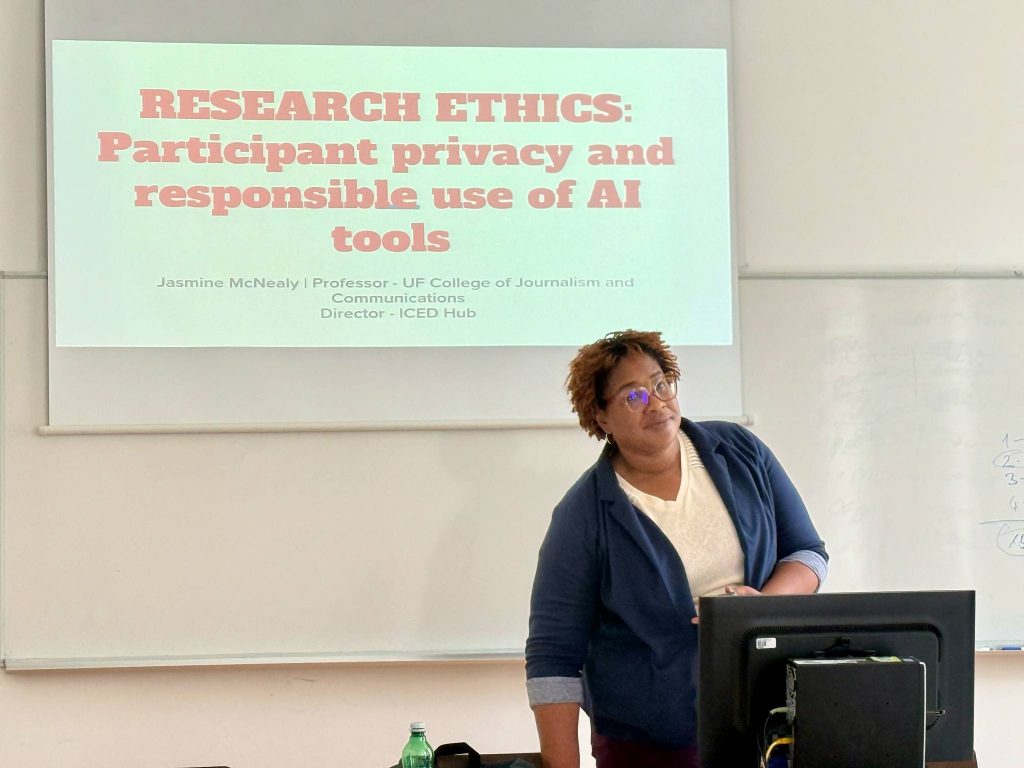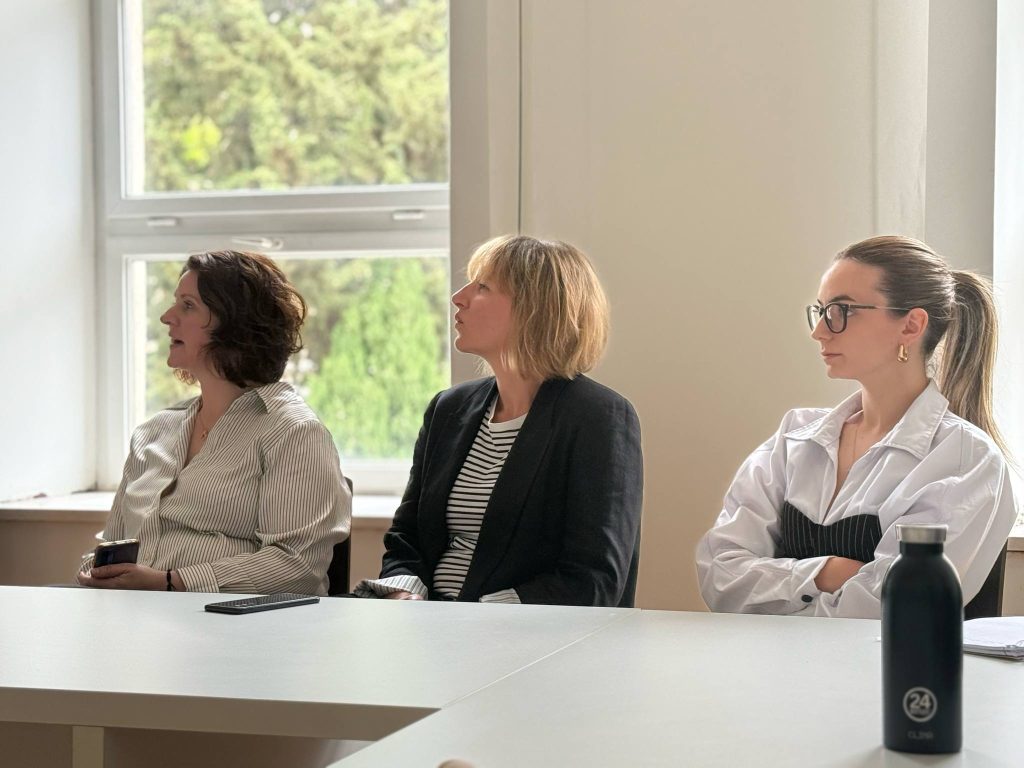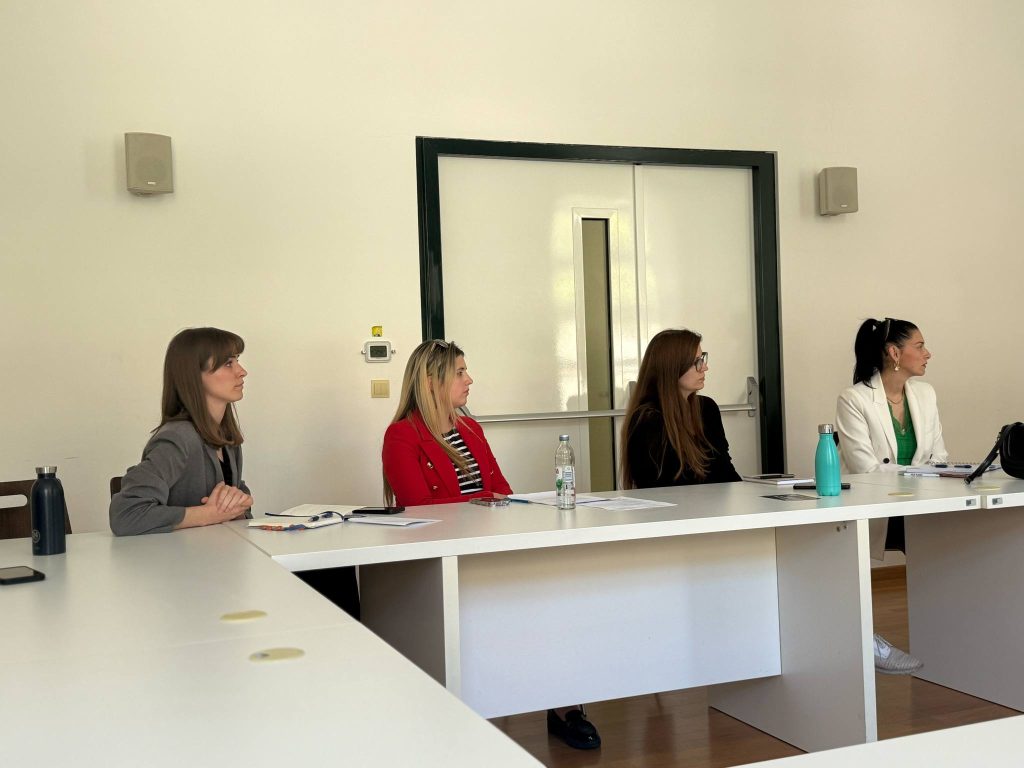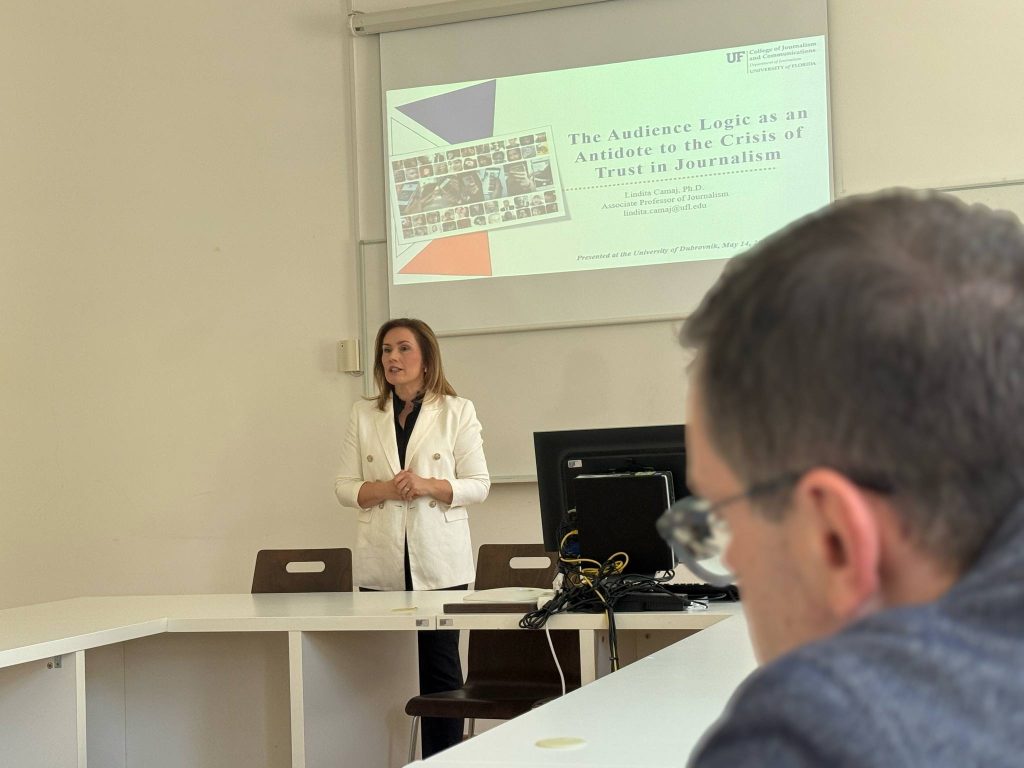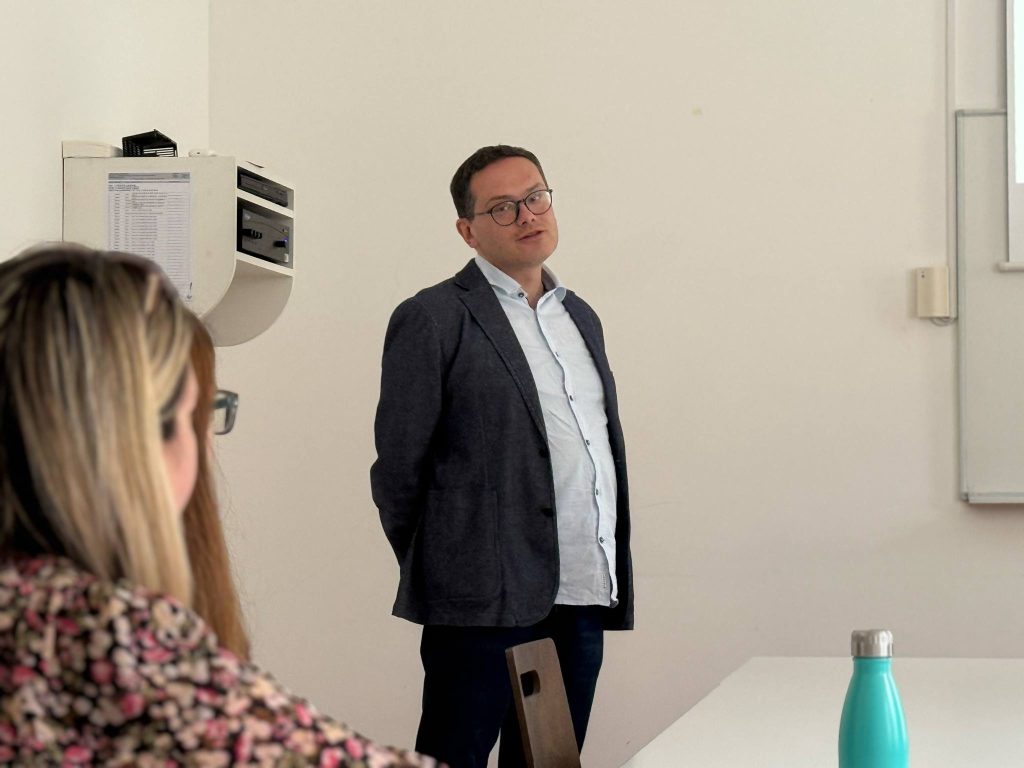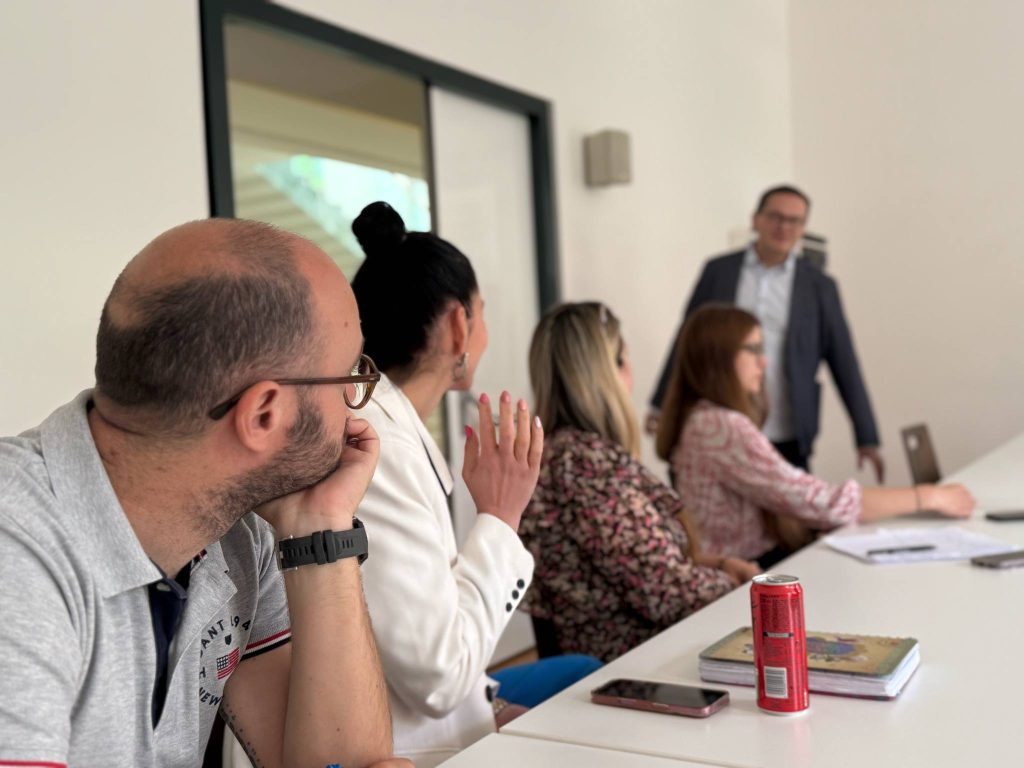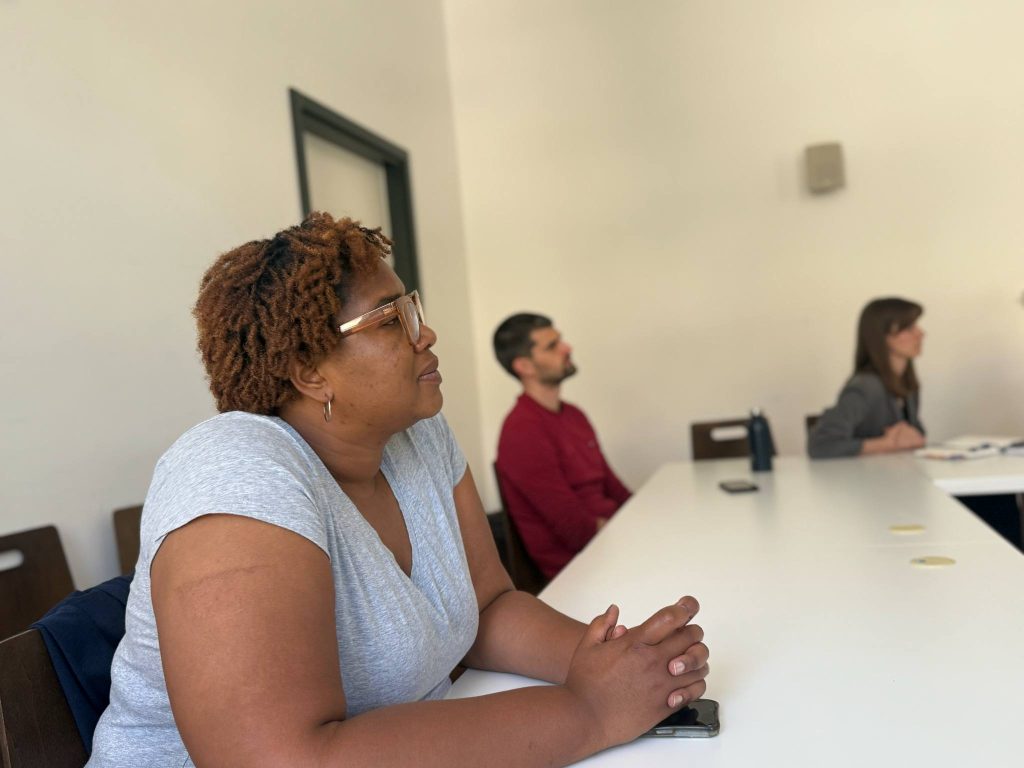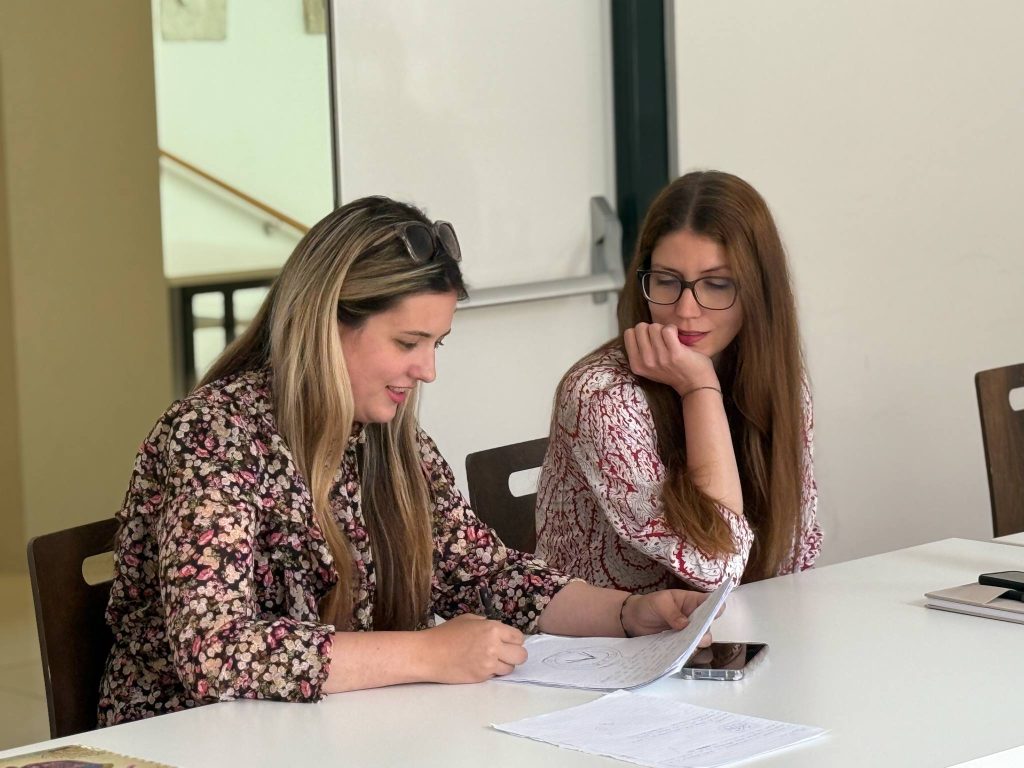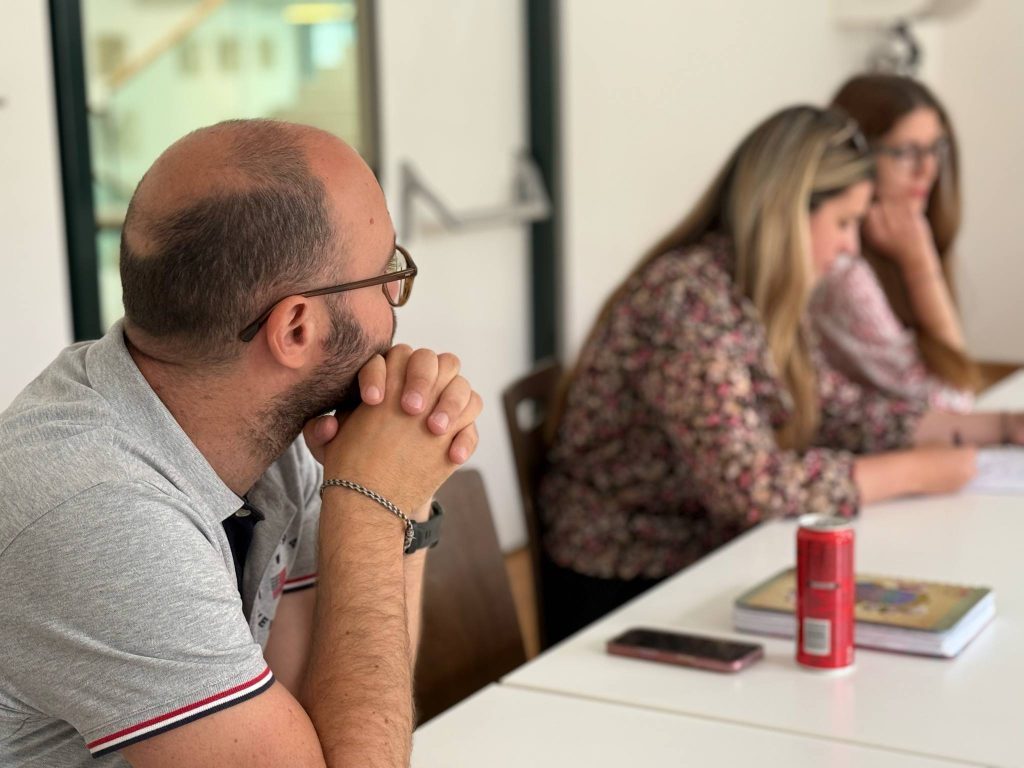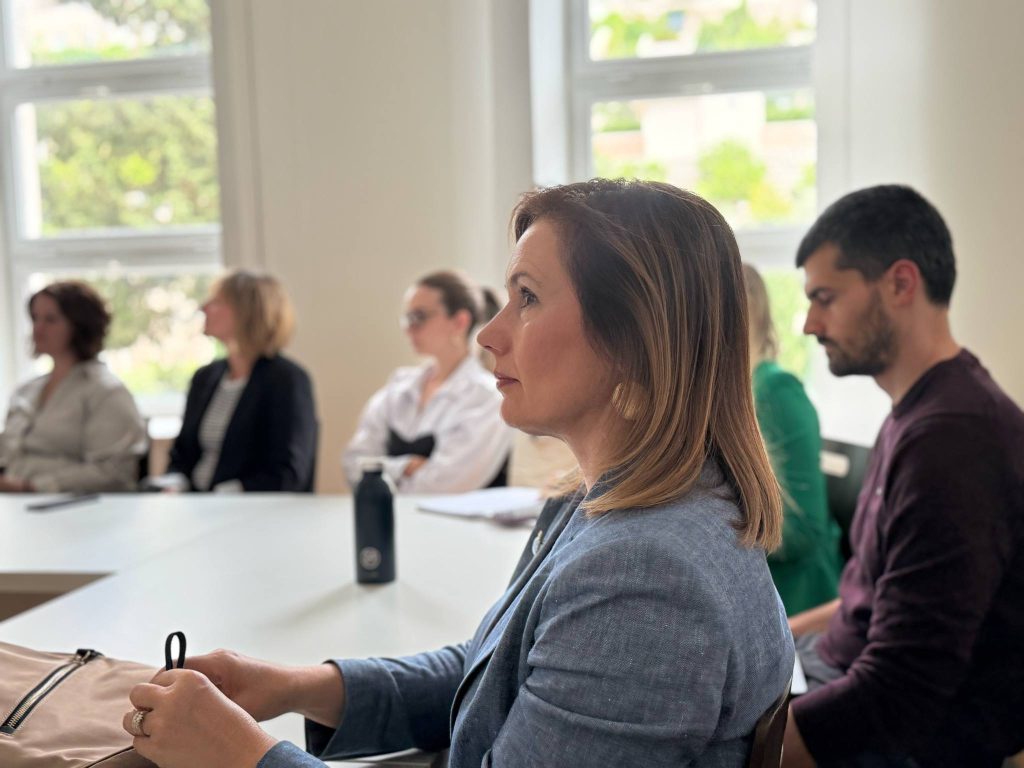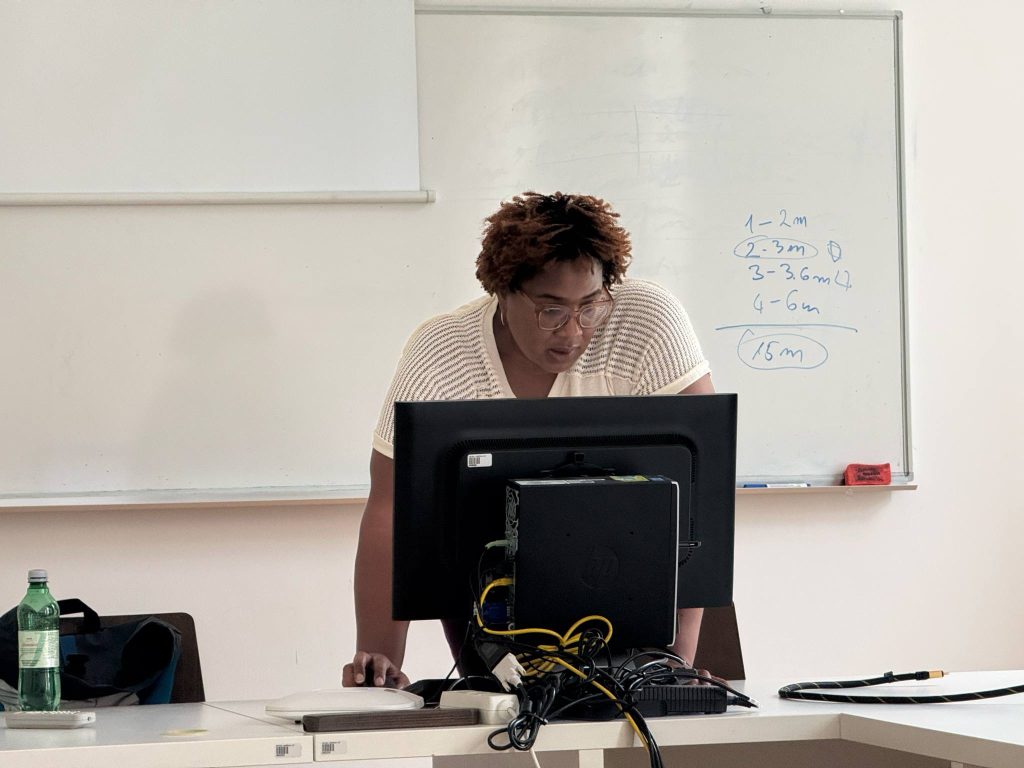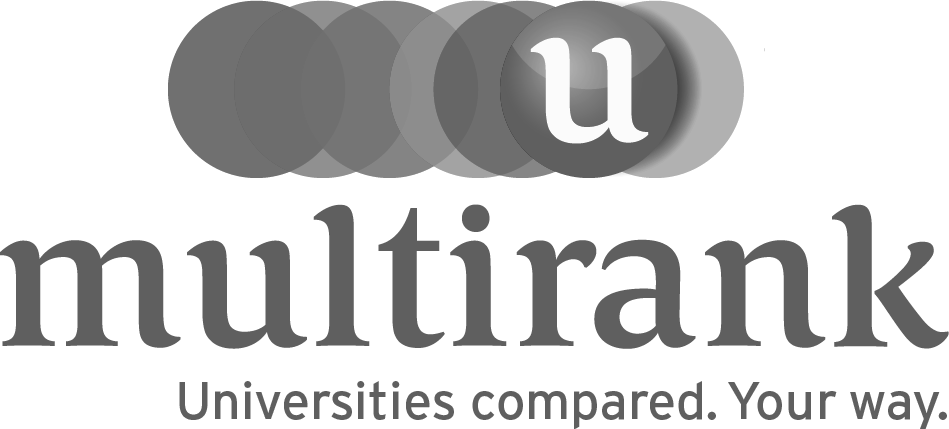
Two highly topical and internationally relevant lectures were recently held at the University of Dubrovnik as part of the Erasmus+ KA171 mobility programme. Esteemed professors from the University of Florida, Assoc. Prof. Dr. Lindita Camaj and Prof. Dr. Jasmine E. McNealy, spent the past week at the Department of Communication and Public Relations at the University of Dubrovnik. During their stay from 13 to 16 May, they participated in various activities aimed at strengthening international cooperation and the exchange of knowledge between partner institutions.
Dr. Jasmine McNealy, a scholar from the University of Florida and head of the ICED Labs (Infrastructure for Communities, Ecology for Data) at the College of Journalism and Communications – a research center focused on the societal impact of technology and digital infrastructure – delivered a lecture on ethical issues in scientific research, with a special emphasis on artificial intelligence.
Her research focuses on infrastructures, technologies, and their impact on communities, particularly in the context of ethical challenges, data governance, and algorithmic decision-making. In Dubrovnik, she presented key findings on responsible research, community engagement, algorithmic harm, and informed consent.
The lecture focused on the ethical dilemmas related to the use of AI in research, with special attention to privacy protection and the responsible use of digital tools. Prof. McNealy raised the important question of who is considered a research participant in the digital age, highlighting the need to rethink informed consent when collecting data from publicly available online sources and using AI tools in research.
She posed a thought-provoking question during her lecture: “Are you truly giving informed consent to be studied just by using a public website? I would argue – not necessarily.” As she emphasized, issues of research integrity, transparency, and responsible technology use are becoming central to today’s scientific landscape.
Dr. Lindita Camaj, also from the University of Florida’s College of Journalism and Communications (UFCJC), delivered a lecture titled: “The Audience Logic as an Antidote to the Crisis of Trust in Journalism.”
Her presentation explored how understanding the audience’s expectations and needs can help rebuild trust in the media – especially in a digital environment overwhelmed by disinformation and algorithm-driven content.
As a case study, Dr. Camaj presented her research on how Croatian national media engage with audiences via WhatsApp and Viber communities, analysing both the benefits and limitations of this form of direct digital communication.
During their stay, the professors were also introduced to the work of the Adriatic Digital Media Observatory (ADMO), led by Vice-Rector, Prof. Dr. Mato Brautović, and met with members of the research team. Additionally, they visited the AXON behavioural research lab at the University’s Department of Economics, which supports several of ADMO’s research activities.
These lectures sparked important discussions about the relationship between science, technology, and society, and highlighted the importance of inclusive and responsible research approaches. The collaboration between the University of Florida and the University of Dubrovnik continues to grow and deepen through guest lectures and joint academic efforts.
This partnership, formalized through a Memorandum of Understanding and supported by the Erasmus+ KA171 programme, has fostered long-term academic ties. In the past academic year, the Department also welcomed UF professors Dr. Benjamin Johnson, Christine Bucan, and Dr. Andrew Selepak, while this year it hosted Prof. Dr. Donald C. Behringer and Dr. Roxane Coche, further strengthening the ongoing cooperation between the two institutions.
